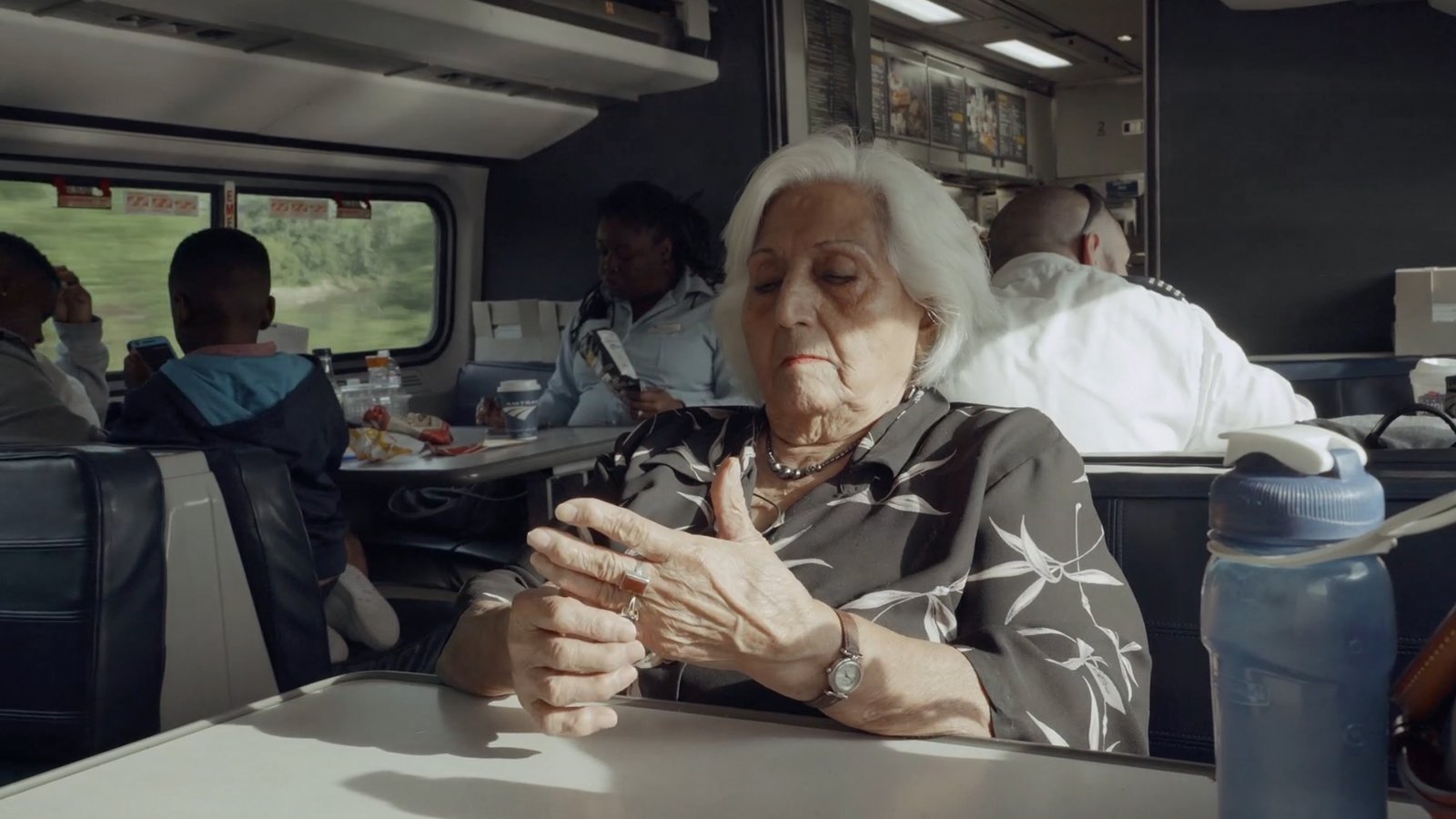SFF 2023 REVIEW: Joonam (جونم)
Urich’s soulful connection with the documentary as well as the subject matter is one that is felt palpably.
Image: Joonam (courtesy of Sydney Film Festival).
“Will there be Iranians there?”
“Yes, maman, it’s an Iranian documentary…”
“Well I don’t look Iranian anyway. They won’t recognise me, but I’ll have to dress nice in case.”
The soundtrack of my childhood. And one that followed me into Palace Central Cinemas, Cinema 1, Seats D3 and D4 a few nights ago. Maman and I weren’t sure of what to expect from Joonam. The diasporic experience, universal or specific to any minority group, is filled with layers of collectivity and specificity for each of its members, despite its often over-generalised representation across our media. Thankfully, Joonam captured the many intricacies of this experience, speaking to a worldwide essence while also being grounded in the personal. To see art as well-balanced and raw as this is a true honour. Joonam is, without a doubt, the final hoorah of my 2023 Sydney Film Festival (SFF) involvement, one in which I wish could continue regularly for others in the state of diaspora.
Cinematic all-rounder Sierra Urich’s documentary follows her own journey of coming to terms with her cultural background in the state of Vermont in the United States. Her Iranian-ness, inherited through the generations first from her grandmother, Behjat, and then her mother, Mitra, is something that has been dislodged from her sense of self. Behjat, energetic and an epitome of the Iranian grandmother, is limited in speaking to her granddaughter through her minimal English skills. Mitra, grief-stricken by her sudden departure from Iran many decades ago, attempts to instil a connection to heritage in her daughter but treads with caution. Urich is then left to pick up the pieces of this enforced, fretful relationship with Behjat while also pleading with Mitra to act as intermediary for both Behjat and the homeland. Spanning across a few months, Urich actively attempts to learn the Farsi language, explore her family’s past, and even brave contemplation of returning to Iran, a feat diasporic audiences of newer generations are all too familiar with.
Not only does Urich star alongside her family in her own work, but her experience with the project is one infused with complete agency. As Joonam’s co-star, director, producer, cinematographer, and editor, Urich’s soulful connection with the documentary as well as the subject matter is one that is felt palpably. Audience members, including my maman and I, sniffled, laughed, cried, and applauded with an utmost sense of connection because we felt connected to Urich’s statement; the journey of finding cultural identity is a lifelong battle and is one that is entirely unique, with its own set of factors and variables, to each person. Having the agency to make this sort of statement on your own terms is unlike anything else I have seen before, including from other Iranian or adjacent films in SFF’s 2023 program.
Some sequences in particular capture this essence with a nuance perfect for the film medium. For example in early moments, as Urich practices her Farsi with homework assigned by her tutor, writing out the fundamental letters of the alphabet like alef and be, Behjat speaks to her in a scattered English. The absolute contrast between these two personas, both demanding control over foreign tongues, is one of the most powerful moments of the documentary. Defeating hell and high water to be able to speak to your own blood across generations and language barriers is a major theme of the piece, and it is only through interpreters like Mitra and tutors like that of Urich’s that make such feats possible. A special thank you to my own Farsi tutor, S.N., for the empathy and desire to include all generations, a force so powerful in the survival of diasporas across the world.
It isn’t often someone else’s story resembles your own so much. More than anything else, Joonam was a call to action. Not only for Iranian viewers of all generations, but for all who are torn between cultures and belong to diasporic groups. Had I seen such a documentary in my earlier years in which my legitimacy was brought into question, my hair mocked, my tongue twisted, I might have reached the feeling of contentment I now possess slightly earlier. I bow before Urich with all my might, grateful for this experience. No passive or apathetic portrayal is present in Joonam. Rather, a co-constructed family narrative by Behjat, Mitra, and Sierra, as the closing credits suggest, results in a feeling of visibility only seen when diasporas dare to speak of the taboo. Facing your fears is not easy. But Urich urges us to at least try.

